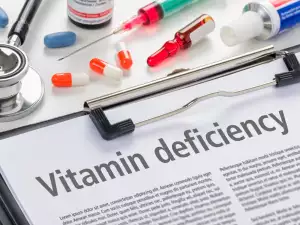There is a reason pregnant women are always advised to take folic acid in tablet form. This prevents nerve, brain or spinal cord defects in babies.
But folic acid is important for other people, too. Another name for folic acid is vitamin B9, which occurs naturally in foods such as dark leafy vegetables, asparagus and brussels sprouts.
Folic acid is especially important for women during pregnancy, especially during the first trimester, a time of rapid cell division and DNA creation, says Tori Armal, a spokesperson for the Academy of Nutrition and Dietetics and a specialist in maternal and prenatal nutrition.
Folic acid is an important vitamin that just keeps your body healthy. "Our bodies create DNA and form new cells all the time just to stay healthy, " says Armal.
The problem is that the body doesn't make folic acid on its own, so you have to get it through food or supplements. When you don't get enough of it, some pretty nasty symptoms can appear.
What are the symptoms of folic acid deficiency?
The biggest symptom of folic acid deficiency is megaloblastic anemia, a condition in which the body has a low number of red blood cells. If you are deficient in folic acid, your red blood cell count may decrease. This can deprive your tissues of oxygen, leading to symptoms such as weakness, fatigue and irritability, headaches, shortness of breath, problems concentrating.
The cells in the oral cavity and those of the skin are renewed very often, so it is also common to see the first signs of folic acid deficiency with symptoms such as superficial sores in the mouth or on the tongue; discoloration or pallor of the skin; premature graying of hair.
Talk to your doctor if you have several of the above symptoms. Many health problems can cause headaches and fatigue, so your doctor want a blood test to confirm your folic acid deficiency.

But do you really need to worry about folic acid deficiency?
Folic acid deficiency is not that common, especially if you take a variety of nutrients. The Centers for Disease Control and Prevention estimates that less than 1% of the population is actually folic acid deficient.
However, some people are at a higher risk of folic acid deficiency than others. Those who suffer from alcoholism, for example, tend to be malnourished and have damaged systems—say, a liver that can't function properly, resulting in poor digestion and absorption of nutrients, Armal says.
People who suffer from gastrointestinal problems, heart problems and inflammatory bowel disease are also at higher risk of folic acid deficiency due to increased chances of nutrient malabsorption.
Women in the early stages of pregnancy may also be at risk of getting inadequate amounts of folic acid, in part, because when you are pregnant your need for folic acid rises (the baby is growing), but on the other hand, your appetite may decrease, notes Armal.




















Comments